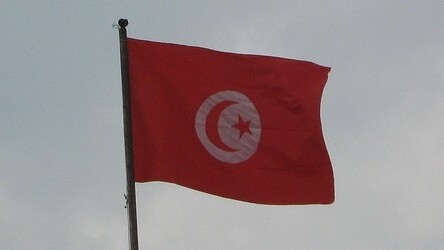
Tunisia has declared March 13 as its National Day for Internet Freedom. The celebration comes just one day after World Day Against Censorship, as well as an apparent attack by Tunisian members of Anonymous on Islamist-owned websites in the country.
Tunisia is still on Reporters without Borders (RWB) list of countries ‘under surveillance’ despite attempts by the newly formed government to distance itself from tactics used by its predecessors.
Under former president, Ben Ali, as the uprising in Tunisia began to gain ground, the government was quick to implement measures, attempting to stifle the movement. Content filtering was kicked into high gear, using a system which they reportedly got a discount on, in exchange for bug-tracking.
The fight against censorship continues
Since the fall of Ben Ali, Tunisia has been struggling with its Internet freedom, but for very different reasons. With conservative politicians dominating the current government, an attempt to ban pornographic material has been at the forefront of Tunisia’s new censorship battles.
In May, a Tunisian court ruled in favour of the ban, but just last month, the decision was reversed. In the meantime, one of the plaintiffs calling for the ban, Monaem Turki, intends to appeal the decision, comparing a ban on pornographic sites in Tunisia to the ban on Hitler apologist sites in France.
Additionally, in May, five Facebook pages were blocked in Tunisia, including several pages associated with pro-democracy activist, Jalel Brick.
Tunisia still ‘under surveillance’
Because of this, Tunisia remains on RWB’s surveillance list. In its latest report on the country, RWB details several attempts in Tunisia to stifle freedom of expression, including attacks on a local TV station’s offices, as well as the arrest of a newspaper editor for publishing a photograph of a nude woman.
While in the past, Tunisia faced systematic political censorship, RWB points to the fact that the country is now “shifting toward moral and religious censorship.”
Positive strides
That said, it hasn’t been all negative news in Tunisia’s Internet sphere over the past year. Global Voices points to the fact that several Tunisian government officials joined Twitter to communicate with the Tunisian people.
The Tunisian Internet Agency (ATI), the governmental agency responsible for all things Internet, and previously the home to the country’s censorship tactics, has also taken the landmark step of launching a Tor mirror in the country – a first for Africa, Asia and most significantly, for the Arab world. The mirror allows users to access the Tor network, if the Tor Project’s official site has been blocked.
The agency has also taken a stand against efforts to once again implement a content filtering system in Tunisia. ATI President Moez Chakchouk told RWB that the organization wishes to remain neutral, transparent, and refuses to engage in filtering. That said, if a court orders it, the ATI will have no choice but to comply.
The date for Tunisia’s National Day for Internet Freedom is also the anniversary of the death of one of Tunisia’s first online activists. Zouhair Yahyaoui, who died on March 13, 2005 of a heart attack, was one of the first to speak out publicly against the Ben Ali regime.
Get the TNW newsletter
Get the most important tech news in your inbox each week.




